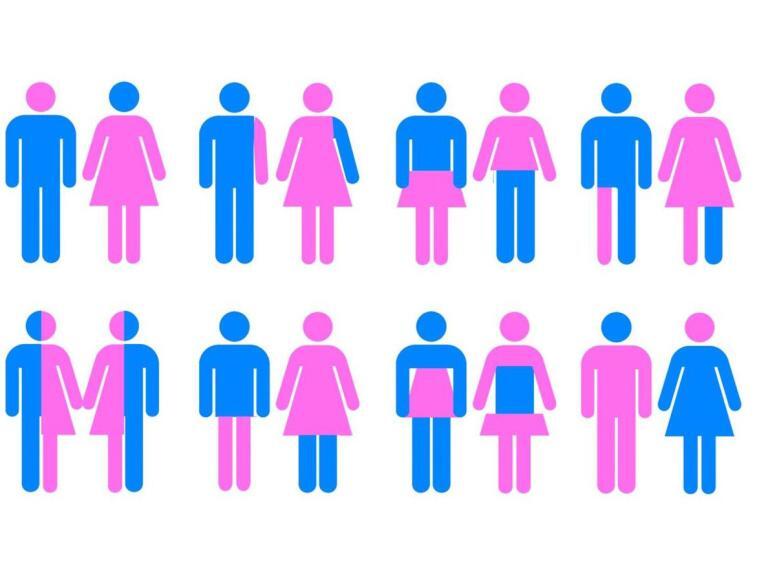In 2015, a celebrated athlete and public figure Caitlyn Jenner captured worldwide attention with her transition (Gender-Affirming Surgery) from male to female, bringing transgender issues into the mainstream consciousness. This high-profile case offered many individuals a glimpse into the complexities of gender dysphoria and raised awareness of the significant decisions those in this position must grapple with. Of these choices, perhaps none are as monumental or potentially life-altering as that of undergoing gender confirmation surgery - an intricate medical procedure designed to align one's physical appearance with their identified gender.
Despite its visibility in popular culture, there remains a profound misunderstanding about what gender affirmation surgery entails and the implications it carries for those who choose to undergo it. The decision is seldom made lightly; it involves meeting rigorous prerequisites set out by healthcare bodies globally such as the World Professional Association for Transgender Health (WPATH), which include prolonged experiences of gender dysphoria, informed consent, age restrictions, controlled health conditions, hormone therapy, and social transitioning.
In light of these stringent requirements and potential complications post-surgery - from psychological adjustment to fertility concerns - this article aims to provide an objective analysis of both its benefits and drawbacks. Furthermore, it delves into emerging phenomena such as medical tourism for affordable surgeries. Thus providing readers with a comprehensive understanding before making any commitments toward this transformative journey.
Key Takeaways
| Gender confirmation surgery should be approached with certainty and is the last step in gender confirmation. |
| Patients must meet certain criteria, including prolonged gender dysphoria, informed consent, controlled mental and physical health concerns, and being over 18 years old. |
| Hormone therapy and social transition for at least 12 months are necessary before surgery. |
| Counseling is recommended to address the emotional and lifestyle implications of gender confirmation surgery. |
Analyzing the Pros and Cons of Gender-Affirming Surgery: A Comprehensive Overview
| Factors | Pros | Cons |
|---|---|---|
| Psychological Impact | Improved mental health due to congruence between mind and body. | Risk of disappointment if expectations are not met post-surgery. |
| Societal Reception | Enhanced comfort in social interactions due to alignment with preferred gender. | Potential stigmatization or discrimination based on societal attitudes towards transgender individuals. |
| Physical Changes | Alleviation of dysphoria through bodily changes aligned with gender identity. | Irreversible procedures such as sterilization; risk of surgical complications. |
| Psychological Impact | Improved mental health and well-being due to affirmation of gender identity. | Potential for increased anxiety or depression due to societal reactions or dissatisfactory results of physical changes. |
Understanding Gender Identity and Gender Dysphoria
Gender identity, a deeply-held sense of being male, female, or somewhere along or outside the gender spectrum, is a fundamental aspect of an individual's personal identity. While most people's gender identities align with their biological sex, some experience a profound disconnect known as Gender Dysphoria.
This condition is characterized by distress and discomfort due to the mismatch between one's experienced gender and assigned gender at birth, often necessitating interventions such as hormone therapy or surgical procedures for mitigation.
What is Gender Identity?
In the vast and complex landscape of human identity, few elements are as deeply personal and profoundly influential as one's gender identity. It is an inherent aspect of self that goes beyond biological sex to encompass a wide range of feelings, behaviors, and identities. Gender identity refers to the internal sense of being male, female, or something else entirely.
This identified gender may or may not correspond with the sex assigned at birth. It's crucial to note that gender identity differs from sexual orientation; while the former pertains to one's innermost concept of self in terms of masculinity or femininity, the latter is about who one is attracted to.
- Gender dysphoric individuals experience discomfort or distress due to a misalignment between their identified gender and the sex they were assigned at birth.
- A person's preferred gender often reflects their deeply held knowledge and understanding about themselves.
- People express their gender in various ways — through clothing, hairstyles, body language, voice modulation, etc.
- Recognizing a different gender than what was assigned at birth doesn't imply homosexuality: sexual orientation (who you're attracted to) is separate from your preferred gender identity (how you perceive yourself).
Gender identity is not static but can evolve over time for some people. It might be fluid for some individuals—fluctuating along a spectrum—or it might remain constant throughout life for others.
For those grappling with discordance between their perceived selves and societal expectations based on their physical appearance—such as those experiencing transgender identities—the journey towards alignment can be challenging but ultimately rewarding. Moving forward will involve delving into explaining what exactly constitutes 'gender dysphoria'.

Explaining Gender Dysphoria
Navigating the complex terrain of self-identity, individuals experiencing gender dysphoria grapple with a profound discordance between their internal sense of gender and their biological sex. This condition, as defined by the American Psychiatric Association, can lead to serious mental health problems due to the mental stress associated with living in a wrong body that feels fundamentally wrong.
The psychological changes that adults with gender dysphoria undergo often manifest in depression, anxiety, and even suicidal ideation. Importantly though, not all transgender people experience such levels of intense dysphoria; some may feel less gender dysphoric but still choose surgical intervention for congruency.
The process of navigating this path can be challenging and daunting given societal expectations and norms around gender identity. However, it is critical to understand that the feelings accompanying gender dysphoria are not indicative of a mental disorder per se - rather they are reactions to external prejudice, rejection, or discrimination faced by these individuals.
As we dive deeper into understanding life prior to surgery and social transition for those grappling with this issue, we will gain clearer insights into their unique journeys.
I've always been very confused with my gender identity. For all intents and purposes, I am a woman.
Caitlyn Jenner
Transgender Males Gender Confirmation Surgeries in the U.S. (2019-2020)
This bar chart shows the number of gender confirmation surgeries undergone by transgender males in the U.S. in 2019 and 2020, according to the American Society of Plastic Surgeons. Note that these numbers may not be fully accurate due to incomplete data collection and classification methods.
Estimated Average of Gender Reassignment Surgeries (Worldwide vs US)
This bar chart shows the estimated average number of gender reassignment surgeries performed worldwide and in the U.S. each year, based on a study published in 2016. Again, these numbers may not be fully accurate due to incomplete data collection and classification methods.
Source of both graphs: grandviewresearch
Before the Decision: Life Prior to Surgery and Social Transition
Before the definitive decision to undertake gender confirmation surgery, one crucial step is the period of social transition where an individual starts living in their preferred gender role. This phase allows for a comprehensive understanding and experience of the socio-cultural implications associated with the new gender identity, offering valuable insights and self-awareness required before undertaking such a significant medical procedure.
Furthermore, managing emotional health during this pre-surgery stage is vital as it helps individuals cope with potential stressors or anxieties they may encounter during this transformative journey.
Social Transition: A Step Before Surgery
Living life as the preferred gender for 12 months is a mandatory measure for those desiring gender confirmation surgery, cultivating certainty and helping to handle any emotional or lifestyle alterations that may arise. This phase referred to as social transition, serves as a crucial step before surgery and plays an integral part in the entire process of transitioning from male to female or vice versa.
The World Professional Association for Transgender Health emphasizes this requirement due to its potential benefits in easing the medical transition process. During this period, people with gender dysphoria can opt to use puberty blockers to temporarily halt the development of secondary sexual characteristics of their biological sex, providing them with time and space to explore their true identities.
- Acceptance: Social transition allows individuals time to experience living fully in their identified gender role within society.
- Understanding: It provides an opportunity for individuals and their families to understand what it means practically and emotionally for them to live permanently in this role.
- Preparation: It prepares people with gender dysphoria mentally and physically for permanent changes post-surgery.
- Support: The extended period allows healthcare providers ample opportunity to provide the necessary support throughout the journey.
Such measures ensure that patients are making informed decisions about their bodies and live while adhering closely to guidelines set forth by professional associations for transgender health care worldwide. Onward through this transformative journey comes a stage where dealing with emotions prior becomes paramount, segueing into discussions around preoperative psychological considerations.
Dealing with Emotions Prior to Surgery
Addressing emotional aspects prior to undergoing such a profound medical procedure is of paramount importance. The decision to undergo gender confirmation surgery, whether it be from male to female or female to male, often brings about a range of emotions for transsexual individuals.
These can include relief and excitement at the prospect of aligning their physical appearance with their desired gender but also fear and anxiety about the surgical process itself and its potential outcomes. Dealing with these emotions prior to surgery can have significant implications for both mental and physical health. Emotions can affect physiological responses, potentially exacerbating existing health conditions or creating new ones. Therefore, understanding how to cope with these emotional experiences is essential in preparing patients for the journey ahead.
Additionally, it's critical that prospective patients are realistic in their expectations regarding the surgery. While gender confirmation surgery can greatly enhance congruence between one's identity and physical presentation, it does not guarantee absolute satisfaction or solve all problems associated with gender dysphoria.
It is an important aspect of ensuring long-term psychological well-being following the procedure that patients comprehend this reality thoroughly before making such a life-altering choice. This understanding leads us seamlessly into our subsequent discussion: delving deeper into the often unspoken realities accompanying transgender sex change procedures.

The Reality of Transgender Sex Change
The journey of sex reassignment surgery for transgender individuals is a multifaceted process that necessitates serious consideration, extensive preparation, and commitment to post-operative care. Transitioning through this form of gender-affirming surgery encompasses both physical transformation and psychological adaptation as individuals seek congruence with their identified gender.
This intricate process, while providing potential relief from gender dysphoria, also necessitates a comprehensive understanding of the benefits, risks, and implications associated with such significant physiological changes.
The Journey of Sex Reassignment Surgery
Embarking on the journey of sex reassignment surgery requires profound courage and unwavering commitment, as it often involves addressing prolonged gender dysphoria through hormonal therapy, living for a year in alignment with one's preferred gender identity, and finally undergoing medically necessary surgical procedures to align physical characteristics with internal self-perception.
The sex reassignment procedure is not a quick solution; it demands time, patience, understanding from others, acceptance of changes to the body, and fostering trust in a medical team who will oversee care from pre-operative stages to post-operative recovery.
- Time: It is not an overnight process but rather the years-long journey of sex reassignment surgery which includes hormone therapy pre-surgery and recovery post-surgery.
- Patience: Awaiting noticeable changes after starting hormone therapy can be grueling psychologically as the desire for immediate change battles with biology's pace.
- Understanding from Others: Discrimination or lack of support can make this journey more difficult adding emotional stress to an already demanding process.
- Trust in Medical Team: This major life-changing decision places immense trust in healthcare professionals to minimize the risk of complications while ensuring maximum results aligned with one's perceived gender identity.
In preparing for this path towards congruence between mind and body through gender-affirming surgery, potential candidates must also anticipate unexpected psychological implications that may arise upon completion of their transition. Such contemplation invites an exploration into the next part of this discourse - transitioning through sex change surgery - where we delve deeper into how individuals adapt post-operatively within themselves and society at large.
Transitioning through Sex Change Surgery
Navigating the complex landscape of post-operative adaptation following reassignment procedures necessitates an in-depth understanding of physical and psychological adjustments, societal acceptance, and personal fulfillment. Opting for a sex change operation demands serious consideration. It's a major surgery involving genital alterations. Risks, such as tissue damage and infections, are inherent. The procedure often requires extensive hospital stays for recovery. Furthermore, patients can anticipate changes in sensations post-surgery.
For those transitioning through sex change surgery, the procedure may be seen as pivotal to their journey toward gender affirmation. The desire to undergo such extensive transformation demonstrates not only their commitment to living authentically but also embodies the pressing need for society to understand and accept this transition with empathy.
While gender-affirming surgery offers individuals the opportunity to align their physical presence with their psychological identity, it should also be considered that these surgeries are not without challenges. Postoperative care is vital for managing both physical alterations and potential psychological implications - all part of transitioning through sex change surgery. It is crucial then, that patients have access to comprehensive support systems during this period.
Despite these complexities, many find that the most profound outcome is achieving congruence between mind and body - a priceless benefit that outweighs possible drawbacks. As we move forward from discussing surgical procedures involved in gender transition, attention must also be given to hormones as integral components of gender alteration.

Hormones: The Pillars of Gender Change
Hormones play a pivotal role in gender-affirming surgery and are fundamental in the process of gender change. The influence of hormone replacement therapy on gender identity cannot be understated, as it not only prepares the body for subsequent surgical procedures but also contributes significantly to an individual's alignment with their identified gender.
As such, attentive analysis and understanding of the effects and implications of hormone therapy is crucial for those considering or undergoing gender confirmation surgery.
| Pro Tip: |
|---|
| As we delve into the role of hormones in gender-affirming surgery, why not also explore the aesthetic side of the transition? For styling tips that help accentuate your transformation, check out our Styling Tips for Trans Women in Transition article. |
Role of Hormones in Gender-Affirming Surgery
In the realm of gender-affirming surgery, the administration of hormones for a duration of 12 months prior to the procedure plays a pivotal role in ensuring better surgical outcomes. The World Professional Association for Transgender Health guidelines advise this as a prerequisite before undergoing surgery, such is its significance.
Hormones aid in aligning an individual's physical appearance with their gender identity, which can make the transition smoother post-surgery. Depending on the type of surgery and the patient's physiology, hormones may help reduce risks associated with tissue damage or changes in sensation after surgery. Thus, hormone therapy is not just a medical treatment complementing trans sex change but also acts as preparatory groundwork before any person can undergo surgical treatment.
The transformative power of hormones in trans-sex change cannot be understated; they serve more than merely facilitating optimal conditions for gender-affirming surgery. They play an instrumental part in helping individuals embrace their preferred gender even before they have made physical modifications through surgery.
However, it should be noted that while hormones provide tangible benefits to those seeking gender affirmation, they might also introduce certain challenges related to changes in sexual function and fertility potential among others. With these considerations at hand, we now turn our attention toward understanding how hormone therapy influences one's sense of self and shapes their experience with their affirmed gender identity.
My brain is much more female than it is male. It is hard for people to understand that but that is what my soul is.
Caitlyn Jenner
Impact of Hormone Therapy on Gender Identity
Bridging the gap between physical form and personal identity, hormone therapy serves as a beacon of hope for those grappling with gender dysphoria, profoundly influencing their journey of self-discovery and acceptance. Hormone therapy engenders a myriad of physical changes that align more closely with the individual's affirmed gender identity.
For instance, a trans woman (MTF) may experience developments such as breast growth and body fat redistribution to create a more feminine physique. Conversely, an FTM individual might observe an increase in muscle mass or a deepening voice under testosterone exposure. These shifts not only play a pivotal role in validating the person's internal sense of self but also prepare them for potential sex change surgery.
However, hormone therapy is not without its complications or implications on one's physical health. The medical history of each candidate needs to be meticulously assessed to determine the suitability for this pathway to transition due to potential risks associated with it - from cardiovascular issues to bone density alterations.
Despite these challenges, hormone therapy remains an indispensable part of many individuals' journeys toward fully embracing their affirmed gender identities and living authentically in society. It paves the way for further exploration into gender reassignment surgery options, allowing individuals to visualize a future where their bodies finally align with their innermost sense of self.

Exploring Gender Reassignment Surgery
The process of sex change surgery, formally known as gender reassignment surgery, is a complex and significant stage in the transition journey for transgender individuals. This procedure necessitates a meticulous and comprehensive assessment to ensure both physical readiness and psychological preparedness for the transformative experience.
The ensuing discourse will delve into the intricacies of this medical intervention, shedding light on its procedural aspects, potential implications, and the critical factors considered in evaluating suitability for such a pivotal step toward gender affirmation.
The Process of Sex Change Surgery
Undergoing sex change surgery involves a thorough and comprehensive process that includes prerequisites such as prolonged gender dysphoria, informed consent, hormone therapy, and living as the preferred gender for a stipulated period. It is essential that the candidate for surgical treatment has controlled physical and mental health issues.
Furthermore, guidelines from The World Professional Association for Transgender Health necessitate that the person to undergo this life-altering procedure must have spent 12 months on hormone therapy before they can proceed with the surgery.
Bottom surgery or genital reconstruction:
- This is arguably the most impactful step in transitioning to one's chosen gender identity.
- Genital surgery alters the appearance of biological sex characteristics to resemble those of the opposite sex. Consequently, it may result in infertility.
Emotional and lifestyle implications:
- Counseling is strongly recommended due to potential unexpected emotional implications after surgery.
- Commitment to living as their preferred gender pre-surgery plays an important role in patient satisfaction post-surgery.
The decision for a sex change should not be taken lightly considering potential complications like tissue damage, infections, and changes in sensation. Moreover, anyone considering this path should remember that while this surgical treatment can provide congruence with one's gender identity leading to psychological improvements, it does not necessarily solve all problems related to gender dysphoria.
In fact, disappointment post-procedure is possible if expectations are unrealistic. Continuity into our detailed exposition on 'assessing gender reassignment surgery' will delve further into these considerations.

Assessing Gender Reassignment Surgery
Delving into the complexities of gender reassignment surgery, it becomes apparent that a comprehensive evaluation of both physical and psychological factors is crucial to ensure the most successful outcome for patients. The process typically involves altering an individual's sex organs and other physical characteristics to more closely resemble those of either male or female.
The cosmetic facet of these procedures can significantly influence an individual's physical appearance; thus, many patients also undergo aesthetic procedures in conjunction with their primary surgeries. It is important, however, not to underestimate the profound psychological implications that often accompany such drastic alterations to one's body. Accordingly, assessing gender reassignment surgery requires a balanced consideration of both its physical and mental aspects.
Furthermore, while some individuals experience immense relief and improved quality of life after undergoing a sex change operation, others may encounter unexpected emotional difficulties post-surgery. These may stem from societal prejudice or internalized transphobia but could also be related to unfulfilled expectations about their new life as either male or female.
Therefore, it is essential for health professionals working with transgender patients not only to provide physiological treatment but also to offer robust psychological support throughout this transformative journey. This well-rounded approach ensures that prospective candidates are fully aware and prepared for all potential outcomes associated with these surgical transformations. With this understanding secured, we can now delve deeper into evaluating the advantages and disadvantages inherent in gender-affirming surgeries.
The Pros and Cons of Sex reassignment surgery
The examination of Gender-Affirming Surgery reveals a myriad of potential benefits and drawbacks. As this multifaceted process is dissected, it becomes apparent that the advantages often include increased congruence with one's gender identity and psychological improvements, thus enhancing personal well-being and self-actualization. However, it is also essential to consider potential drawbacks such as the inability to reproduce naturally, the possibility of surgical complications, and unanticipated psychological implications post-operation.
| Pro Tip: |
|---|
| Understanding the benefits and potential drawbacks of sex change surgery is key. To complement this, get a broader perspective by reading Challenges Faced by Transgender People. It provides a real-world view of post-surgery life. |
The Benefits of Gender-Affirming Surgery
In what ways might gender-affirming surgery create a significant impact on an individual's life? Among the numerous benefits, this procedure can bring about congruence with one's gender identity and notable psychological improvements.
For example, an individual who has struggled with the incongruity between their biological sex and self-identified gender may find relief in aligning their physical appearance with their internal sense of self through procedures such as breast augmentation, mastectomy, chest reconstruction or facial feminization surgery. This process is not merely cosmetic; it constitutes a crucial part of affirming an individual's chosen identity.
- Gender-affirming surgery can boost confidence by helping individuals feel more comfortable in their bodies.
- Post-surgery, many individuals report enhanced quality of sexual life due to increased body satisfaction.
- Following surgery, ongoing hormone therapy combined with surgical changes can result in secondary sexual characteristics that align more closely with the patient's identified gender.
- The external validation from others perceiving them as they see themselves often leads to improved social interactions and relationships.
These benefits notwithstanding, it is paramount to consider potential challenges associated with undergoing gender-affirming procedures. A comprehensive understanding aids individuals in making informed decisions regarding whether this route suits their unique journey toward self-realization.
It's equally critical to remember that while these procedures can offer profound benefits for some individuals, they are not a panacea for all challenges related to gender dysphoria or societal acceptance. With this perspective in mind, let us delve into potential drawbacks that may accompany sex change surgeries.
Potential Drawbacks of Sex Change Surgery
Despite its potential benefits, medical procedures aimed at bodily alignment with one's self-identified gender can also carry certain risks and challenges. Particularly in the initial weeks after surgery, the body is susceptible to a lot of complications such as tissue damage and infections due to invasive procedures like genital reconstruction or removal of breasts.
Furthermore, individuals need to undergo hormone therapy for around 12 months before surgery for better outcomes. However, even this preparatory phase may cause issues like changes in physical attributes and emotional mood swings.
The answer to the question of whether sex change surgery will solve all problems associated with gender dysphoria is not a definitive yes. While it certainly helps align one's physical appearance with their self-identified gender, psychological implications may persist and coping mechanisms post-surgery are critical for mental health. Additionally, patients must come to terms with the possibility of infertility and altered sensations which could take weeks to months to adjust to.
| Potential Drawbacks | Risks | Coping Mechanism |
|---|---|---|
| Tissue Damage | High during the initial weeks after surgery | Regular check-ups & care |
| Mood Swings | Common during the hormone therapy period | Mental health counseling |
| Infertility | Possible side effects of genital surgery | Pre-surgical fertility preservation options |
| Altered Sensations | This can occur due to nerve rearrangements in surgeries | Time & Psychological support |
| Possibility of dissatisfaction | Surgery might not solve all problems related to dysphoria | Pre-surgical counseling & Post-operative support |
As individuals navigate through these potential drawbacks, understanding how life unfolds following a sex change procedure becomes crucially significant. The next section delves into this aspect further by exploring life post-sex change surgery.

Coping with Life after Sex Change Surgery
The transition to life after sex change surgery encompasses an array of experiences, both positive and potentially challenging. This includes the process of embracing one's new sex post-surgery, a journey that can bring about profound changes in self-perception and interpersonal relationships. Additionally, individuals may face societal challenges, necessitating strategies for managing external reactions and potential discrimination following their transformative procedure.
| Pro Tip: |
|---|
| Understanding the benefits and potential drawbacks of sex change surgery is key. To complement this, get a broader perspective by reading Challenges Faced by Transgender People. It provides a real-world view of post-surgery life. |
Embracing New Sex: Post-Op Experiences
Embarking on the path of gender confirmation surgery requires readiness to tackle post-operative experiences. These often involve physical and psychological changes. Typically, individuals eagerly anticipate these shifts, as they seek harmony between their external appearance and internal identity.
However, it is imperative to remember that while these modifications are transformative in nature, they also come with potential complications such as tissue damage and infections which may require additional medical attention.
| Physical Changes | Psychological Changes |
|---|---|
| Altered appearance of biological sex characteristics | Increased congruence with gender identity |
| Potential complications (tissue damage, infections) | Improved self-esteem and mental health |
| Infertility due to genital surgery | Potential disappointment if results do not meet expectations |
| Changes in sensation | Emotional Adjustment to new sexual identity |
| Need for ongoing post-operative care | Continued commitment to the preferred gender |
Even as the body gradually adapts to its new form following the surgical intervention, there is an array of psychological adjustments that play out concurrently. The euphoria of finally achieving a state of congruence between one's physicality and perceived gender can lead to significant improvements in self-esteem and overall mental health.
However, it's equally important to acknowledge potential disappointments if surgical outcomes do not meet personal expectations or societal standards. This underlines the importance of counseling before and after surgery - helping individuals prepare for this emotional rollercoaster ride that accompanies their transformative journey.
With this understanding woven into the fabric of post-operative care, one can truly embrace their newfound sexual identity while preparing themselves for navigating societal interactions in the subsequent chapter titled 'Dealing with Society: Challenges Faced After Sex Change'.
Dealing with Society: Challenges Faced After Sex Change
Navigating societal reactions and interactions can present a unique set of obstacles for individuals who have undergone the transformative process of sex reassignment surgery. These challenges are often multifaceted, encompassing both personal and social aspects such as acceptance, discrimination, and stigmatization.
It is not uncommon for individuals to encounter prejudice or misunderstanding from those who lack knowledge or sensitivity toward their journey. This can manifest in various areas of life including professional settings, interpersonal relationships, and public spaces. The pressure to conform to normative gender expectations can also prove challenging as they may face scrutiny or ridicule if their physical appearance does not align perfectly with societal stereotypes.
Moreover, transitioning requires significant psychological adaptations. These include navigating societal perceptions and accepting a new identity. Robust support networks are crucial in this stage. They offer vital emotional stability in these turbulent periods.
However, despite these hardships, many find that post-operative experiences lead to increased self-confidence and congruence between their internal sense of self and external presentation. In essence, although the road post-surgery may be fraught with complexities due to societal attitudes it ultimately provides an opportunity for these individuals to live authentically as themselves.
With that said however, it is vital when considering gender-affirming surgery to take into account all facets involved - both positive and negative - prior to making an informed decision about proceeding with such a significant step on one's path towards self-discovery.
| Pro Tip: |
|---|
| Facing societal challenges after a sex change operation? You're not alone. For a deeper understanding of your journey, read Coming Out as a Transgender. If passing is a concern, our Passing as Trans Woman guide can also be helpful. |
Conclusion: Weighing the Pros and Cons of Gender Transition Surgery
In closing, it is crucial to reflect on the multifaceted journey of gender-affirming surgery. This involves not only a physical transformation but also deep psychological and emotional shifts that can shape the individual's relationship with their self-identity. Ultimately, the decision to undergo such a procedure should be grounded in an understanding of one's personal identity, underscoring its significance in this context.
Reflecting on the Journey of Gender Affirming Surgery
Contemplating the course of gender-affirming surgery requires an understanding of its profound implications, from the initial decision-making process and the requisite pre-operative steps to managing potential complications and navigating post-operative physical and psychological changes.
This journey is not just about a physical transformation but also involves a significant emotional evolution. It necessitates a deep commitment to living as one's preferred gender, with the likelihood of facing societal prejudices along the way. Furthermore, while surgery can be vital for those suffering from long-term gender dysphoria, it doesn't always resolve all issues. Hence, potential disappointment exists.
Reflecting on this journey also highlights several benefits such as achieving congruence with one's gender identity which can lead to considerable psychological improvements. However, there are also potential drawbacks like possible surgical complications or infertility post-surgery which require thorough consideration.
Additionally, costs can be prohibitive for many people leading them towards medical tourism in search of affordable options. As we dissect these aspects further in our discussion, it becomes clear that contemplating such life-altering decisions necessitates an intricate balance between desired outcomes and potential challenges - an equilibrium that ultimately shapes our understanding of personal identity within this context.
Moving forward into the final section provides us with an opportunity to delve deeper into the importance of personal identity in sex-change.
Final Thoughts: The Importance of Personal Identity in Sex Change
Understanding the profound relationship between personal identity and the decision to undergo such a transformative procedure is paramount in recognizing the complex journey of individuals seeking congruence with their inner selves.
The gravity of this process not only encompasses physical changes but also intricately intertwines with psychological, emotional, and social aspects. It is crucial to remember that every person's experience is unique, hence the need for a personalized approach while respecting autonomy and affirming gender identity.
The choice to pursue gender confirmation surgery can be marked by both anticipation and apprehension. The impact on personal identity can be profound as it often culminates in an alignment of one's internal sense of self with their physical presence in society.
This alignment frequently results in significant improvements in mental health and overall quality of life. However, potential challenges should not be overlooked. Alongside tangible benefits are possible complications, including surgical risks and irreversible fertility loss. Moreover, societal attitudes may present additional obstacles.
FAQ
Here are some frequently asked questions about gender reassignment surgery:
What is social transitioning and how does it factor into the process prior to surgery?
Social transitioning involves living and presenting oneself in a way that aligns with their gender identity. This can include changes in clothing, name, pronouns, and social interactions. Social transitioning is an important step prior to surgery as it allows individuals to live authentically and helps them determine if gender reassignment surgery is the right choice for them.
How do hormones play a role in sex change surgery?
Hormone therapy, also known as hormone replacement therapy (HRT), is often a part of the gender reassignment process. Hormones, such as estrogen or testosterone, are used to induce secondary sex characteristics that align with an individual's gender identity. This can include changes in body shape, fat distribution, voice, and facial hair growth.
What is the process involved in gender reassignment surgery?
The process of gender reassignment surgery typically involves multiple steps. It begins with psychological evaluations and counseling to ensure the individual is mentally prepared for the procedure. Hormone therapy may be initiated to induce physical changes. The surgical procedures themselves vary depending on the desired outcome, but may include procedures such as breast augmentation or removal, genital reconstruction, and facial feminization or masculinization.
What are the pros and cons of undergoing sex change surgery?
Pros of undergoing sex change surgery include a potential reduction in gender dysphoria, increased alignment between gender identity and physical appearance, and improved mental well-being. It can also lead to greater social acceptance and improved quality of life. However, there are cons to consider as well, such as the risks associated with surgery, potential complications, and the irreversible nature of some procedures. It is important for individuals to carefully weigh the pros and cons and make an informed decision in consultation with medical professionals.




